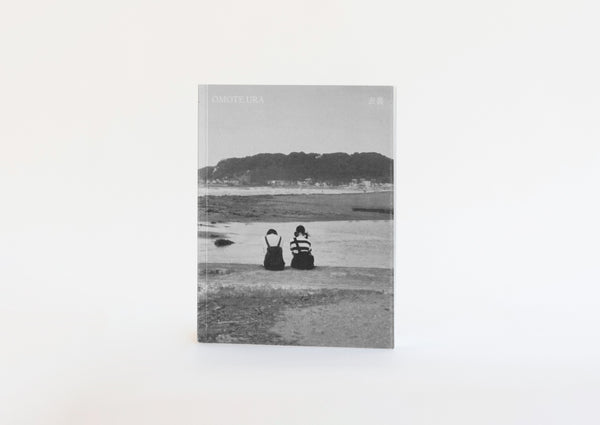
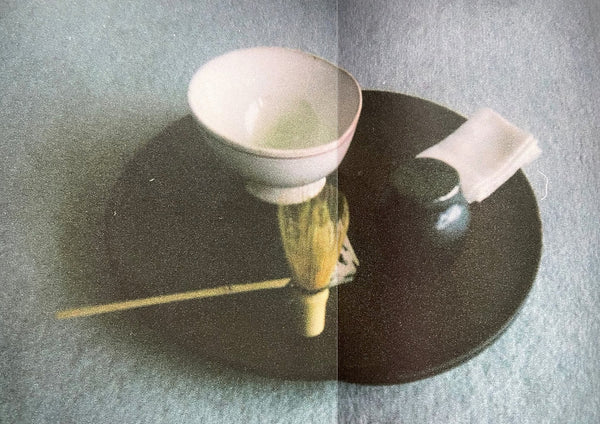

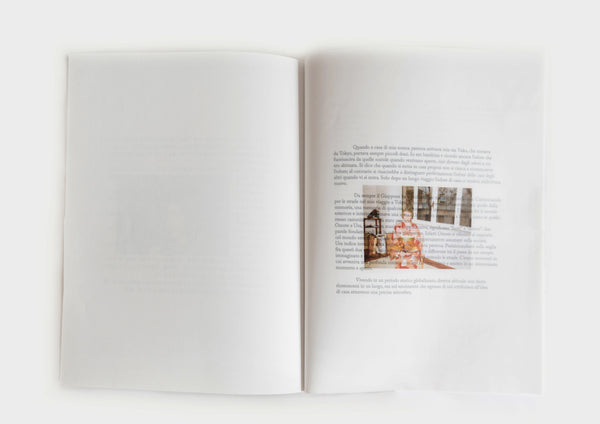
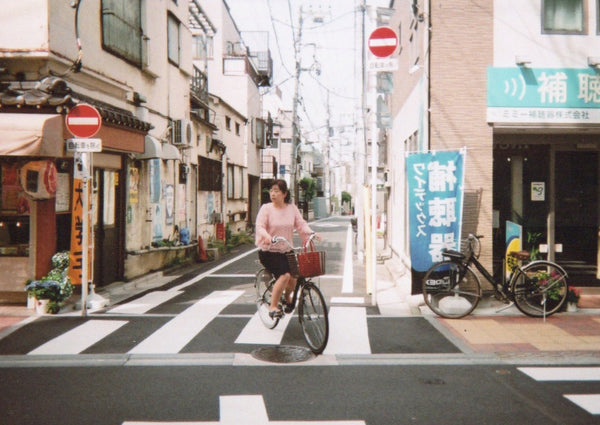
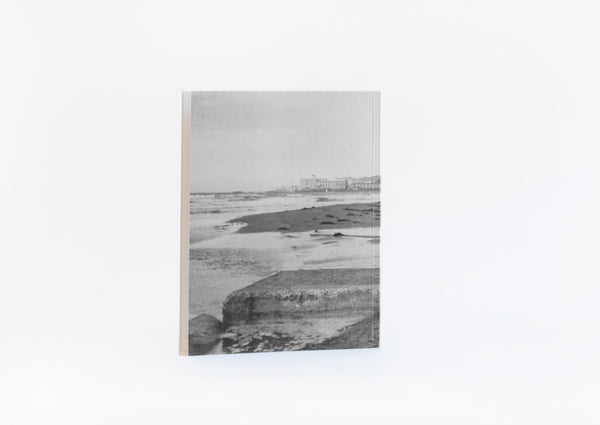
Vittoria Fragapane
Omote Ura
SelfSelf, Milano — 2021
When my aunt Yuko came to my paternal grandmother’s house, returning from Tokyo, she always brought small gifts. I was a child and I still remember the smell that came out of those boxes when they were opened, so different from the smells I was used to. It is said that when you enter your home you cannot recognize its smell; on the contrary, you would be able to perfectly distinguish the smell of other people’s homes when you enter them. Only after a long journey does the smell of home seem new to us.
Japan has always meant a second home for me. Walking through the streets of Tokyo in one of my trips, the images of the present faded with those of memory,
a memory of something I always imagined. The union between the outer and inner world formed a sort of link between experiences and locations, as if that same path had already been travelled. Omote and Ura can be simply translated
as “outside” and “inside”: two fundamental words for Japanese culture. Indeed, Omote refers to the relationship with the outside world and to what specific behaviour you should assume in society. Ura, instead, indicates the intimate and private sphere of a person. Positioning myself on the threshold between these two worlds, I searched for similarities and differences between the country I always imagined and the one
I was really walking through. There were times when there was
a deep connection with what I saw and felt in a specific moment and space.
Living in a globalized historical period, it is becoming customary not to recognize ourselves in a place, but in the feeling that each of us attributes to the idea of home through a precise atmosphere.